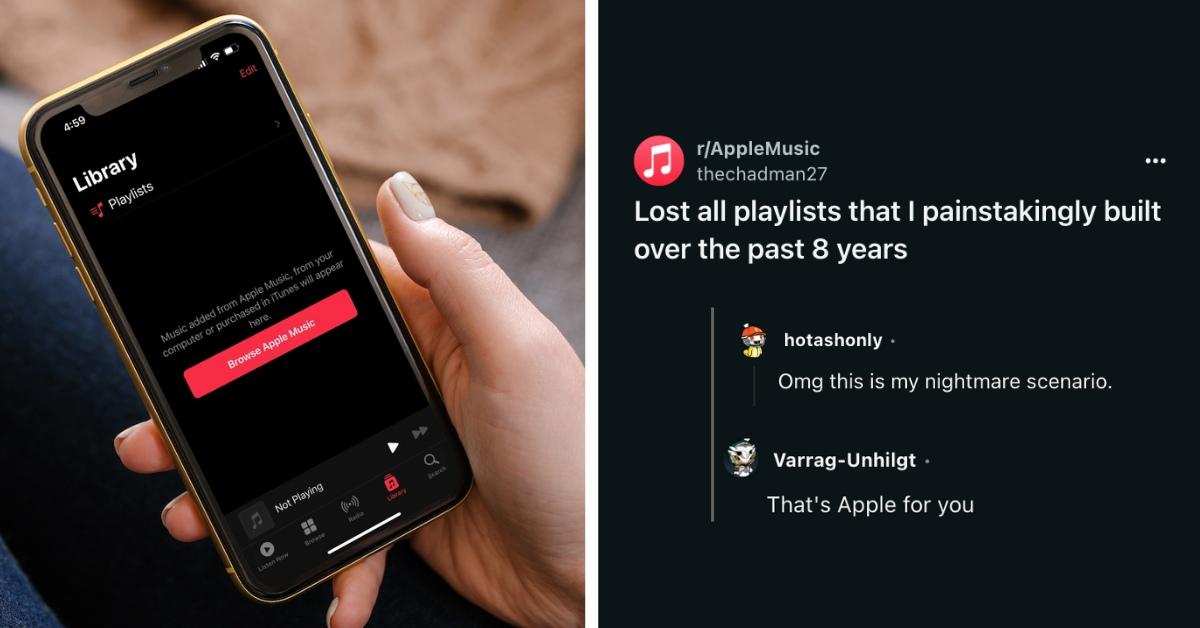And he’s not the only one.
A Reddit user, u/thechadman27, recently shared a distressing experience on the platform, revealing how he lost all his Apple Music playlists, which he had been curating over the past eight years.
This incident has sparked a significant discussion within the Reddit community about data retention policies and practices of major tech companies, particularly focusing on how these policies affect consumers who need to temporarily pause their subscriptions
Eight Years of Music Down the Drain
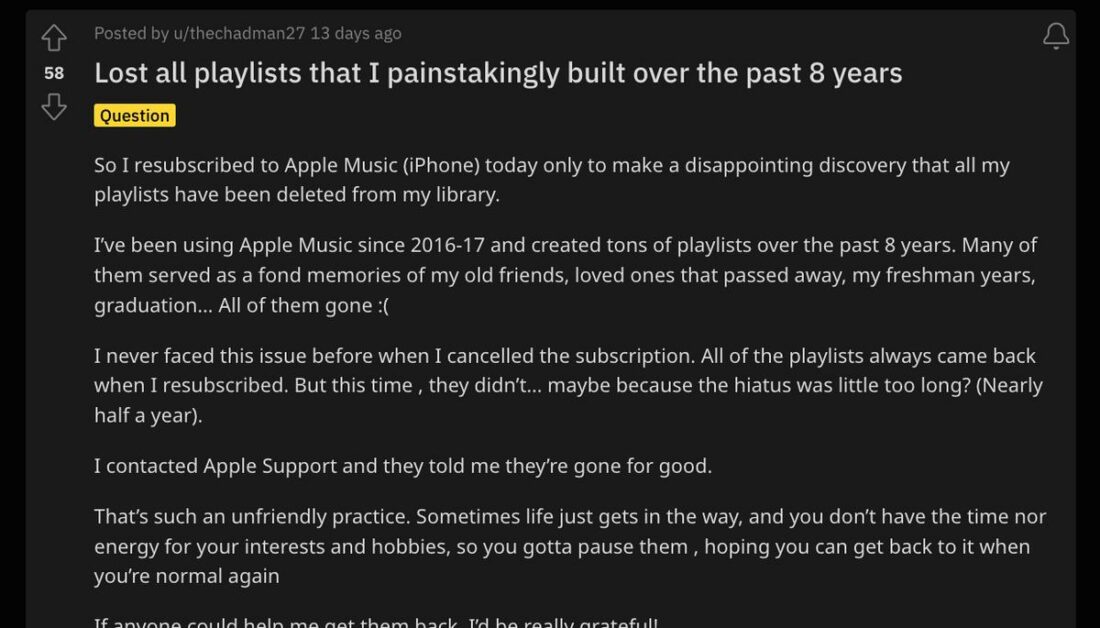
Upon resubscribing to Apple Music after a six-month hiatus, the OP found that all his playlist collections from the last eight years had been deleted.
Having been a loyal user since around 2016 or 2017, the OP has accumulated a vast collection of playlists. These did not only serve as a personal music library but also as a repository of memories linked to various life events, including friendships, lost loved ones, and significant milestones.
This loss was particularly shocking to the OP, as in previous instances of unsubscribing and resubscribing, his playlists had always been restored.
The OP contacted Apple Support to see if there’s a way to return the lost playlists.
However, Apple Support’s response confirmed that the playlists are gone for good, further compounding the user’s dismay. In the end, he expressed his disappointment, highlighting how life’s circumstances sometimes require pausing subscriptions and criticized Apple’s policy as unfriendly to consumers who find themselves in such situations.
Debate in the Community
The Reddit community quickly rallied around the user, sharing their thoughts, experiences, and advice on the matter.
Many users were quick to criticize Apple’s approach, questioning how a company of its stature and technological capability could fail to protect user data such as playlists. These users labeled Apple’s approach as “anti-customer.” They speculated that Apple doesn’t save playlists as a tactic to maintain ongoing subscriptions.
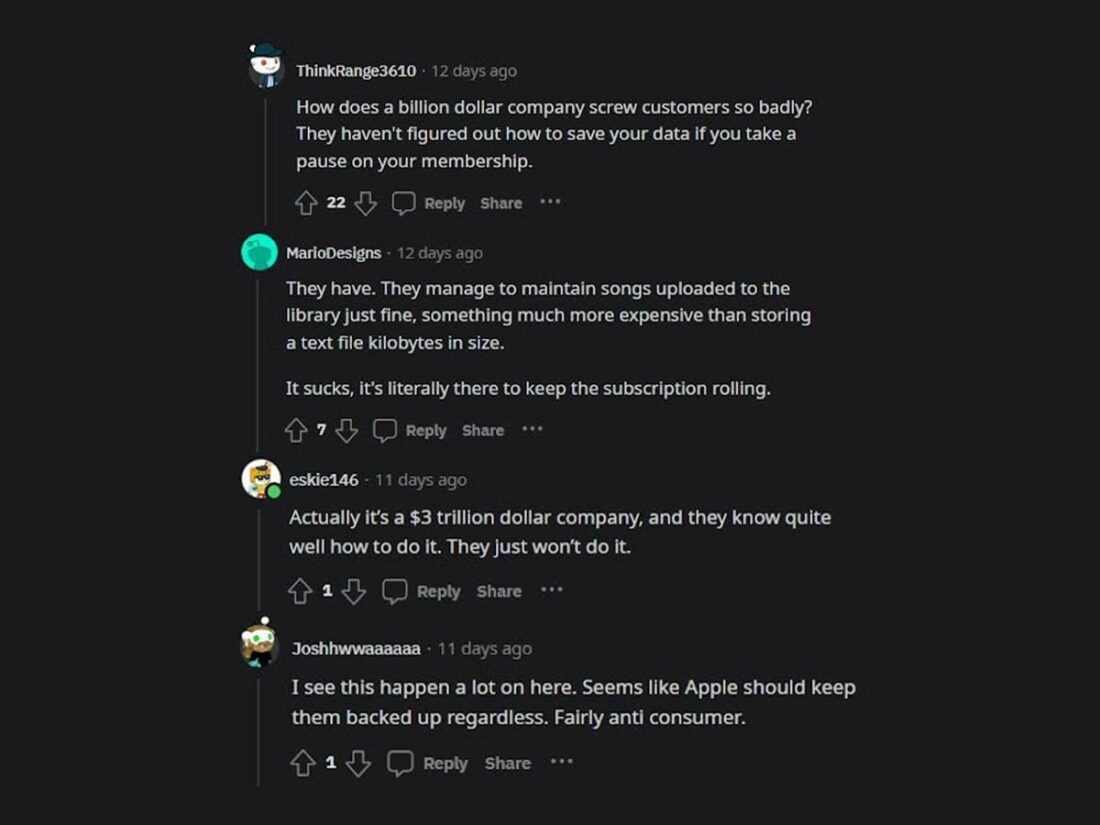
Others debated the obligations of service providers to maintain user data after subscriptions end, with a few siding with Apple’s policy. They argue that the company is not obligated to store user data indefinitely, especially for non-paying customers.
However, this perspective was challenged by others, including the OP, who argued that playlists, being essentially text files, could be easily and cost-effectively stored on iCloud or locally on devices.
“You subscribe to stream music. Playlists should have nothing to do with it. Before AM, iTunes used to save playlists, ratings, etc on your device. In the same way, They could just store the playlists’ info, which is just text, on iCloud, which you pay for, or on the device locally. It’s a common practice to store app data.
It’s a simple fix that costs them nothing except a few lines of code. But it’s a deliberate move by Apple to punish its customers if they don’t remain subscribed.” responds the OP.
The Apple Music Flaw that Risks Playlist Deletion
Apparently, the OP’s case isn’t new. People have been telling their own stories of how they lost all their Apple Music playlists after unsubscribing and resubscribing.
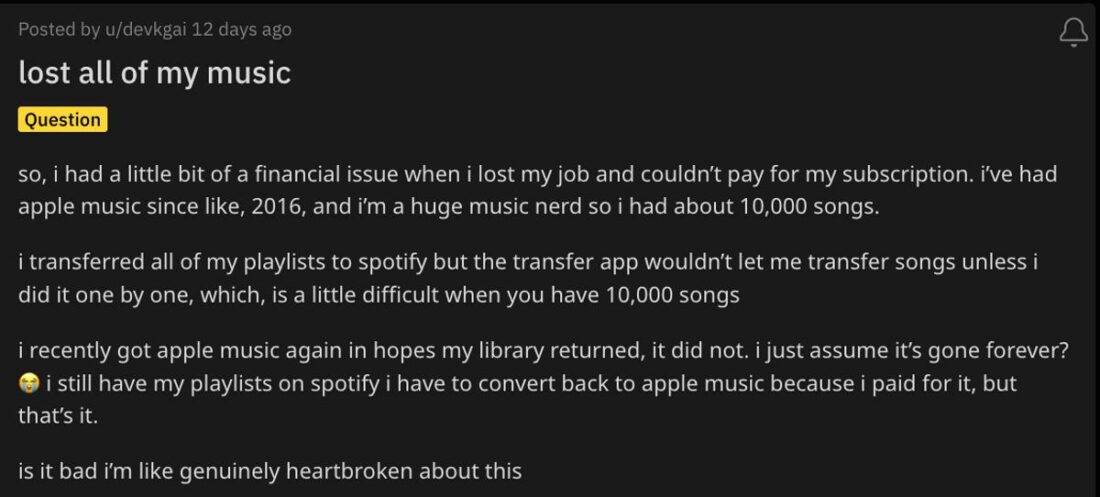
Some users have speculated that Apple Music will only hold on to your playlists if you resubscribe within three months after unsubscribing. However, other accounts negate this thought, as some users lost all their playlists just days after unsubscribing.

There are also some users who shared their own experiences where they didn’t lose all their playlists. But, their Apple Library still wasn’t the same after resubscribing.
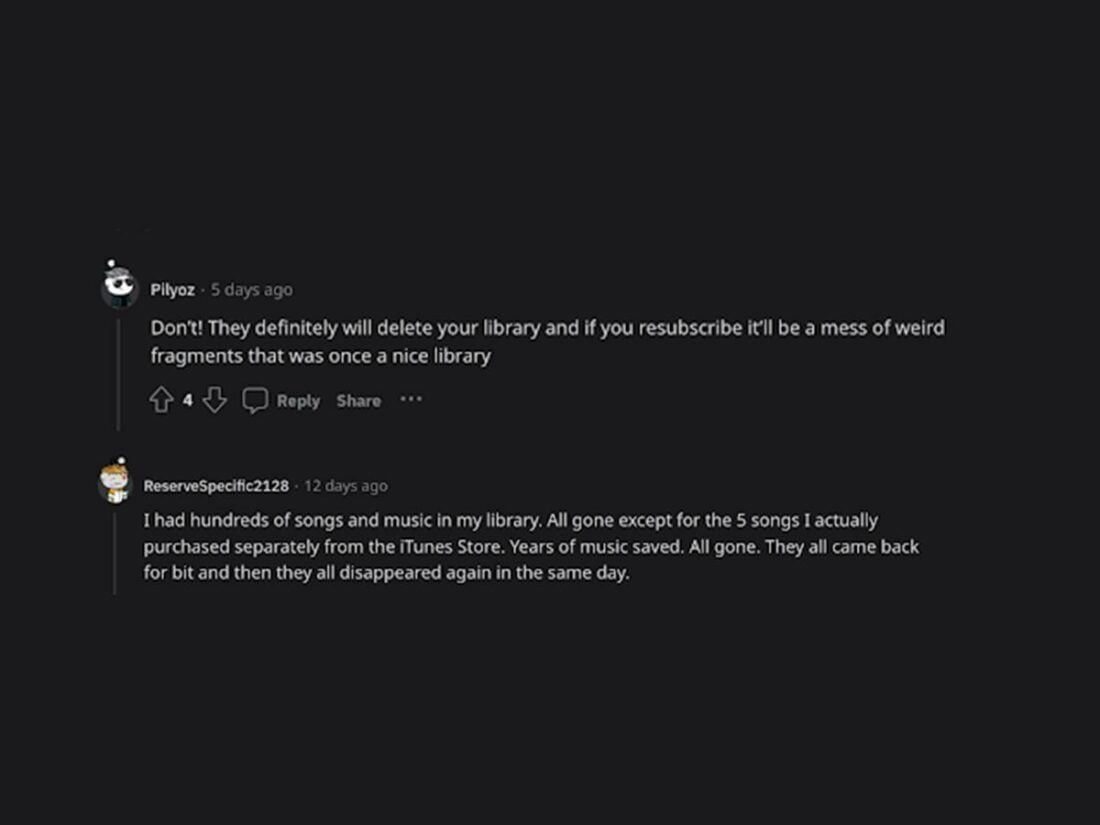
It’s clear that Apple Music highly discourages people from unsubscribing as much as possible unless they think they won’t return to Apple Music at all. But, since life happens, and sometimes you really need to unsubscribe for a while, the community has acknowledged the importance of backing up your music before unsubscribing.
Redditor u/SkipK advised exporting playlists via File > Library > Export Library to preserve their metadata. Many also suggested duplicating playlists across streaming platforms like Spotify, Qobuz, and Tidal for added security.
On the other hand, other commenters recommended apps like Hezel, Marvis Pro, Rewind, and Soundiiz for automatic backups.
